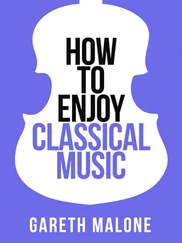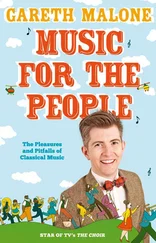STEPHEN FRY - OF CLASSICAL MUSIC
Здесь есть возможность читать онлайн «STEPHEN FRY - OF CLASSICAL MUSIC» весь текст электронной книги совершенно бесплатно (целиком полную версию без сокращений). В некоторых случаях можно слушать аудио, скачать через торрент в формате fb2 и присутствует краткое содержание. Жанр: на английском языке. Описание произведения, (предисловие) а так же отзывы посетителей доступны на портале библиотеки ЛибКат.
- Название:OF CLASSICAL MUSIC
- Автор:
- Жанр:
- Год:неизвестен
- ISBN:нет данных
- Рейтинг книги:5 / 5. Голосов: 1
-
Избранное:Добавить в избранное
- Отзывы:
-
Ваша оценка:
- 100
- 1
- 2
- 3
- 4
- 5
OF CLASSICAL MUSIC: краткое содержание, описание и аннотация
Предлагаем к чтению аннотацию, описание, краткое содержание или предисловие (зависит от того, что написал сам автор книги «OF CLASSICAL MUSIC»). Если вы не нашли необходимую информацию о книге — напишите в комментариях, мы постараемся отыскать её.
OF CLASSICAL MUSIC — читать онлайн бесплатно полную книгу (весь текст) целиком
Ниже представлен текст книги, разбитый по страницам. Система сохранения места последней прочитанной страницы, позволяет с удобством читать онлайн бесплатно книгу «OF CLASSICAL MUSIC», без необходимости каждый раз заново искать на чём Вы остановились. Поставьте закладку, и сможете в любой момент перейти на страницу, на которой закончили чтение.
Интервал:
Закладка:
Jean-Baptiste Lully was an Italian working in Paris, who was born not only with a musical ear but also with dancing feet. He and the King were about to dance a duet, with Louis Quatorze dressed as the Sun - hence the tide The Sun King, which stuck. I guess as titles given to you for prancing around like an idiot go, the Sun King isn't bad. I imagine Uranus King would have been much harder to explain to the vicar.
Such a success was the ballet that Lully was promoted from a lowly 'violon' player to Director of the King's Music, eventually going on to set up a revolutionary orchestra of twenty-five violins as well as flutes, oboes, bassoons, trumpets and timpani. In fact, if you ever get the chance to listen to anything by Lully performed live, try to remember that half of the instruments you are hearing were, at that time, brand, spanking NEW. They were gadgets, gizmos, the new toys, only just developed. You see, Lully was experimenting with music and the sounds of the orchestra. More importantly, he was experimenting with the sounds of the orchestra and getting it right. He was changing the face and sound of the orchestra for good.
LULLY. FALSY SENSY SECURITY
S
adly, nowadays, not much Lully is ever really played or heard. He is, to be fair, best remembered these days for the manner of his end which, despite being well chronicled, deserves to be recounted. It's said he was in the middle of a performance of his?? Deum, a piece which, irony of ironies, he had written to mark his beloved King's recovery from some illness or other. No doubt one of those particularly unpleasant seventeenth-century ones. Er, probably involving pox. Whatever.
Anyway, back then, when you conducted an orchestra, you didn't just wave a baton in front of them. Oh no, back then, they made you earn your money. You had a big stick, roughly the size of a broom handle, sometimes with bells on, sometimes not, and what you did was you held this stick vertically and banged it on the floor, every first beat of the bar, or howsoever took your fancy. In this tragic performance of the?? Deutn, though, there was Lully, banging the floor with gay abandon, when he suddenly whacked himself in the foot -1 don't know, maybe some particularly attractive 'bit-of-wig'-" walked past. Whatever happened, a few days later an abscess is said to have developed, whereupon he contracted gangrene and died some time after. Dead at the age of fifty-five, and forever consigned, alongside Alkan/ '* to that section of music books entitled 'Composers who met sticky ends' Poor sod.
PASS THE PURCELL
I
^ngland. 1689. (Cue that sort of stirring yet scene-setting music.Jthat you get in a classic black-and-white, Sunday afternoon movie. The music dies.) There's been a bit of a reshuffle, as it were.
Cromwell, the Lord Protector, as he ended up, is long buried. Let's hope he was dead. All in all, though, thank goodness - I mean, ghastly haircuts.
Charles II also came and went. A bit like when we went from the 1960s to the 1970s: out went the roundheads, and in came the long, flowing locks. (Wonder if they wore flares?) The capital has more or less fully recovered from both the Great Plague - which killed off some 70,000 people, give or take a stiff- and the Great Fire. And so to music, where there is now a bunch of great composers, carrying on the good work in the current big thing, opera, and none more so than England's finest, Henry Purcell.
Much like Lully in France, Purcell was composer to the King's private band, as well as being organist at Westminster Abbey. In historical terms, Purcell is a bit of a mystery man. Very little is known Ј This genuine Louis XIVpiece of original slang has been authenticated from the only surviving manuscript»/Thesee et ses gateaux de fer -'Tbesie and his buns of steel' ©. fi fi Charles-Valentin Alkan, a couple of centuries later, allegedly reached up to retrieve a book from a top shelf and was killed by his falling bookcase. about him. In fact, so little that I've had to make some of the next bit up, see if you can tell which.
Now some thirty years old, his rise to musical stardom had been more or less meteoric.
He was merely the bellows pumper on the organ at fifteen and yet composer to the King at eighteen. By the time he was twenty, he was the best-known composer in England. And his favourite colour was purple.© Well, sorry, but there's not much else we know about him. Let's see.
He wrote a variety of different music, from lascivious rugby songs to music for Royal State occasions. (See, that bit's true.)
What else? Well, he wrote music for three different monarchs: Charles II, James II and Queen Mary. Mm, right, well, he once wrote a fantasy based on a single note. And he had a pet rabbit called Keith.©
Damn, sorry. Anyway, as I say, there's very little of his real life that we know anything about.
Back to 1689, and the thirty-year-old Purcell unveils his latest creation - Dido and Aeneas. It's a superb addition to the blossoming opera genre, and it shows Purcell's ability to set words as being second to none. It contains one particular lament that is not just the high and low point of the opera, musically and emotionally, it is also all set over the same repeated set of notes in the low parts. It's called a 'ground bass', and is intended to be repeated, over and over again, with the tune and occasionally the harmony changing above it. Purcell's use of this is inspired. In comes this gorgeous, painfully sad aria sung by one of the opera's leads, Dido. She is sort of saying… 'I want to thank you, for giving me the best years of my life - remember me.' Now that's what I call a case of history repeating itself.
If you ever see it on the bill, then go see it. What can I say? It's just fab. It might have been written some 313 years ago, but it's still one of the most moving pieces of music ever. And, of course, beloved, particularly, of schoolchildren, because Purcell sets the words so that they pause just at the right point to embarrass the music teacher: 'When I am laid… am laid in earth.' Cue fits of giggles from the back. 'OK, stop that, stop that, everyone, or I'm keeping you #//back.'
Anyway, can't stay here, musing over Purcell's Dido and Aeneas. I've got people to meet, music to hear, wars to watch people being dismembered in.
Here's a bracing thought. Despite the fact that we've only just gone past Purcell's 'When I am laid in earth', let me tell you: Bach is already four years of age, as is Handel. Despite their genius, though, we're not going to hear much out of them both for a good while yet. Lully has, by now, popped his clogs - almost literally, sadly for him. But what of the 'age', as it were. What is it 'the age' of? CiD
W
ell, how about 'The Age of Wren'? Christopher Wren is around and still building. Remember, it's only just over twenty years since the Great Fire, and, although the powers-that-be didn't go for his plan for a complete rebuild, he has nevertheless enjoyed a bit of a boom time. His legacy, as it were, will all have been built over the next thirty years or so - St Michael's, Cornhill; St Bride's, Fleet Street; the Sheldonian Theatre; the Ashmolean Museum; and, of course, due to be finished in a mere… twenty-one years, the big one: St Paul's itself. Running the country now are William and Mary, and the full list of their subjects runs to some 5 million names, compared to say about 58 million today.
But, if you wanted to, you could focus in for a moment. It's also the age of a man called Johann Pachelbel. Now Pachelbel, despite sounding like the cheese from a child's lunchbox, was a composer from Nuremberg. He had a few minor jobs as… well, you know, organist of St Stephen's, Vienna, court composer to the Duchy of Wigan©, that sort of thing. But he merits his place in the history books for three reasons. First, Bach liked him. Well, to be fair, Bach would, wouldn't he? He's only four right now, and could no doubt do little more than smile and dribble on him. But give him time and Bach would draw a great deal of influence from Mr Pachelbel.
Читать дальшеИнтервал:
Закладка:
Похожие книги на «OF CLASSICAL MUSIC»
Представляем Вашему вниманию похожие книги на «OF CLASSICAL MUSIC» списком для выбора. Мы отобрали схожую по названию и смыслу литературу в надежде предоставить читателям больше вариантов отыскать новые, интересные, ещё непрочитанные произведения.
Обсуждение, отзывы о книге «OF CLASSICAL MUSIC» и просто собственные мнения читателей. Оставьте ваши комментарии, напишите, что Вы думаете о произведении, его смысле или главных героях. Укажите что конкретно понравилось, а что нет, и почему Вы так считаете.










